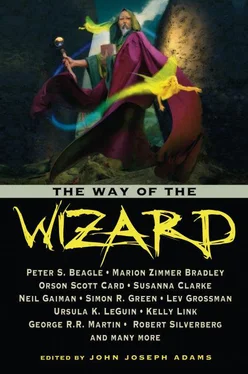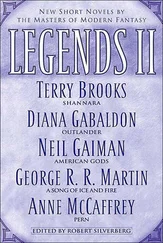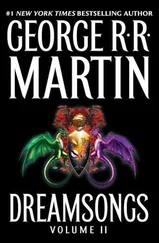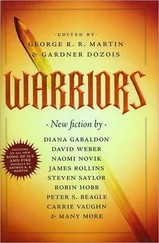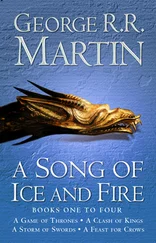Then there was the matter of Marvyn’s attitude toward Angie’s attitude about Jake Petrakis.
Jake Petrakis was a year ahead of Angie at school. He was half-Greek and half-Irish, and his blue eyes and thick poppy-colored hair contrasted so richly with his olive skin that she had not been able to look directly at him since the fourth grade. He was on the swim team, and he was the president of the Chess Club, and he went with Ashleigh Sutton, queen of the junior class, rechristened “Ghastly Ashleigh” by the loyal Melissa. But he spoke kindly and cheerfully to Angie without fail, always saying Hey, Angie , and How’s it going, Angie? and See you in the fall, Angie, have a good summer . She clutched such things to herself, every one of them, and at the same time could not bear them.
Marvyn was as merciless as a mosquito when it came to Jake Petrakis. He made swooning, kissing noises whenever he spied Angie looking at Jake’s picture in her yearbook, and drove her wild by holding invented conversations between them, just loudly enough for her to hear. His increasing ability at witchcraft meant that scented, decorated, and misspelled love notes were likely to flutter down onto her bed at any moment, as were long-stemmed roses, imitation jewelry (Marvyn had limited experience and poor taste), and small, smudgy photos of Jake and Ashleigh together. Mr. Luke had to invoke Angie’s oath more than once, and to sweeten it with a promise of a new bicycle if Marvyn made it through the year undamaged. Angie held out for a mountain bike, and her father sighed. “That was always a myth, about the gypsies stealing children,” he said, rather wistfully. “It was surely the other way around. Deal.”
Yet there were intermittent peaceful moments between Marvyn and Angie, several occurring in Marvyn’s room. It was a far tidier place than Angie’s room, for all the clothes on the floor and battered board game boxes sticking out from under the bed. Marvyn had mounted National Geographic foldout maps all around the walls, lining them up so perfectly that the creases were invisible; and on one special wall were prints and photos of a lot of people with strange staring eyes. Angie recognized Rasputin, and knew a few of the other names — Aleister Crowley, for one, and a man in Renaissance dress called Dr. John Dee. There were two women, as well: the young witch Willow, from Buffy the Vampire Slayer , and a daguerreotype of a black woman wearing a kind of turban folded into points. No Harry Potter, however. Marvyn had never taken to Harry Potter.
There was also, one day after school, a very young kitten wobbling among the books littering Marvyn’s bed. A surprised Angie picked it up and held it over her face, feeling its purring between her hands. It was a dark, dusty gray, rather like Milady — indeed, Angie had never seen another cat of that exact color. She nuzzled its tummy happily, asking it, “Who are you, huh? Who could you ever be?”
Marvyn was feeding his angelfish, and didn’t look up. He said, “She’s Milady.”
Angie dropped the kitten on the bed. Marvyn said, “I mean, she’s Milady when she was young. I went back and got her.”
When he did turn around, he was grinning the maddening pirate grin Angie could never stand, savoring her shock. It took her a minute to find words, and more time to make them come out. She said, “You went back. You went back in time?”
“It was easy,” Marvyn said. “Forward’s hard —I don’t think I could ever get really forward. Maybe Dr. Dee could do it.” He picked up the kitten and handed her back to his sister. It was Milady, down to the crooked left ear and the funny short tail with the darker bit on the end. He said, “She was hurting all the time, she was so old. I thought, if she could — you know — start over, before she got the arthritis… ”
He didn’t finish. Angie said slowly, “So where’s Milady? The other one? I mean, if you brought this one… I mean, how can they be in the same world?”
“They can’t,” Marvyn said. “The old Milady’s gone.”
Angie’s throat closed up. Her eyes filled, and so did her nose, and she had to blow it before she could speak again. Looking at the kitten, she knew it was Milady, and made herself think about how good it would be to have her once again bouncing around the house, no longer limping grotesquely and meowing with the pain. But she had loved the old cat all her life, and never known her as a kitten, and when the new Milady started to climb into her lap, Angie pushed her away.
“All right,” she said to Marvyn. “All right. How did you get… back, or whatever?”
Marvyn shrugged and went back to his fish. “No big deal. You just have to concentrate the right way.”
Angie bounced a plastic Wiffle ball off the back of his neck, and he turned around, annoyed. “Leave me alone! Okay, you want to know — there’s a spell, words you have to say over and over and over, until you’re sick of them, and there’s herbs in it too. You have to light them, and hang over them, and you shut your eyes and keep breathing them in and saying the words—”
“I knew I’d been smelling something weird in your room lately. I thought you were sneaking takeout curry to bed with you again.”
“And then you open your eyes, and there you are,” Marvyn said. “I told you, no big deal.”
“There you are where? How do you know where you’ll come out? When you’ll come out? Click your heels together three times and say there’s no place like home?”
“No, dork, you just know .” And that was all Angie could get out of him — not, as she came to realize, because he wouldn’t tell her, but because he couldn’t. Witch or no witch, he was still a small boy, with almost no real idea of what he was doing. He was winging it all, playing it all by ear.
Arguing with Marvyn always gave her a headache, and her history homework — the rise of the English merchant class — was starting to look good in comparison. She went back to her own bedroom and read two whole chapters, and when the kitten Milady came stumbling and squeaking in, Angie let her sleep on the desk. “What the hell,” she told it, “it’s not your fault.”
That evening, when Mr. and Mrs. Luke got home, Angie told them that Milady had died peacefully of illness and old age while they were at work, and was now buried in the back garden. (Marvyn had wanted to make it a horrible hit-and-run accident, complete with a black SUV and half-glimpsed license plate starting with the letter Q, but Angie vetoed this.) Marvyn’s contribution to her solemn explanation was to explain that he had seen the new kitten in a petshop window, “and she just looked so much like Milady, and I used my whole allowance, and I’ll take care of her, I promise!” Their mother, not being a true cat person, accepted the story easily enough, but Angie was never sure about Mr. Luke. She found him too often sitting with the kitten on his lap, the two of them staring solemnly at each other.
But she saw very little evidence of Marvyn fooling any further with time. Nor, for that matter, was he showing the interest she would have expected in turning himself into the world’s best second-grade soccer player, ratcheting up his test scores high enough to be in college by the age of eleven, or simply getting even with people (since Marvyn forgot nothing and had a hit list going back to day-care). She could almost always tell when he’d been making his bed by magic, or making the window plants grow too fast, but he seemed content to remain on that level. Angie let it go.
Once she did catch him crawling on the ceiling, like Spider-Man, but she yelled at him and he fell on the bed and threw up. And there was, of course, the time — two times, actually — when, with Mrs. Luke away, Marvyn organized all the shoes in her closet into a chorus line, and had them tapping and kicking together like the Rockettes. It was fun for Angie to watch, but she made him stop because they were her mother’s shoes. What if her clothes joined in? The notion was more than she wanted to deal with.
Читать дальше
